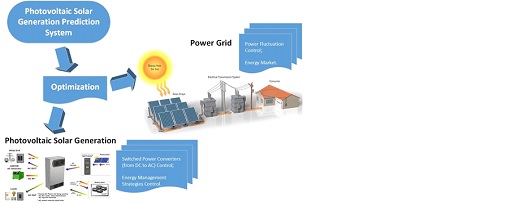Hermes Jose Loschi
State University of Campinas (UNICAMP), SP-Brazil
Biography
Hermes José Loschi is currently working as a Professor in photovoltaic systems courses at Unicamp's Extension School (EXTECAMP) and he is a Ph.D candidate by the Department of Communications (DECOM) of the Faculty of Electrical and Computer Engineering (FEEC) at State University of Campinas (UNICAMP), SP-Brazil. He is also a Technical Program and Finance Chair of Brazilian Technology Symposium (BTSym). In the research area of renewable energy, he had the opportunity to: published five articles in scientific journals, published one book on photovoltaic systems and published seven articles in conferences proceedings. He also develop review activities for reputed scientific journals, as the Renewable & Sustainable Energy Reviews from Elsevier.
Abstract
The uncertainly management is a key challenge in grid operations and the probabilistic forecasts will play an important role toward this end as the penetration of photovoltaic solar generation continues to increase. Since so many different aspects can influence in forecasting of photovoltaic solar generation, mainly for this forecasting does an intermediate step of global solar irradiance forecasting, the probabilistic forecasting to predicting ramp events is increasingly used to deal with the factor of global solar irradiance dependence to the dynamics atmospheric and presence and level of clouds, and contribute to higher prediction accuracy through characterization of the ramp events. This paper proposes an algorithm for development of transition probabilities matrices to predicting ramp events, based on Markov model, for application, mainly in local site where there is the absence of a long amount of solarimetric dates and clouds patters information to represent the best characteristics of the ramp events. The tests are repeated for solar data set and observations are presented, prediction modeling results with distinct properties in terms of accuracy are achieved. Through the calculation results of RMSE for the tests of the solar data set referring to the January 2015 of Natal city, It was possible to establish a performance of the prediction method, at time intervals that presented ramp events, with an accuracy from 6.94%-12.35%![]() . Through the calculation results of RMSE for the tests of the solar data set referring to the January 2016 of Natal city, It was possible to establish a performance of the prediction method, at time intervals that presented ramp events, with an accuracy from 7.06% to 19.36%. This algorithm can be useful and contribute to higher prediction accuracy of global solar irradiance incidence, consequently, photovoltaic solar generation.
. Through the calculation results of RMSE for the tests of the solar data set referring to the January 2016 of Natal city, It was possible to establish a performance of the prediction method, at time intervals that presented ramp events, with an accuracy from 7.06% to 19.36%. This algorithm can be useful and contribute to higher prediction accuracy of global solar irradiance incidence, consequently, photovoltaic solar generation.